JUSTIN LANGER: Commentary is the art shaping how sport is experienced
JUSTIN LANGER: Their voices didn’t just call sporting events; they helped shape how we experience sport itself.
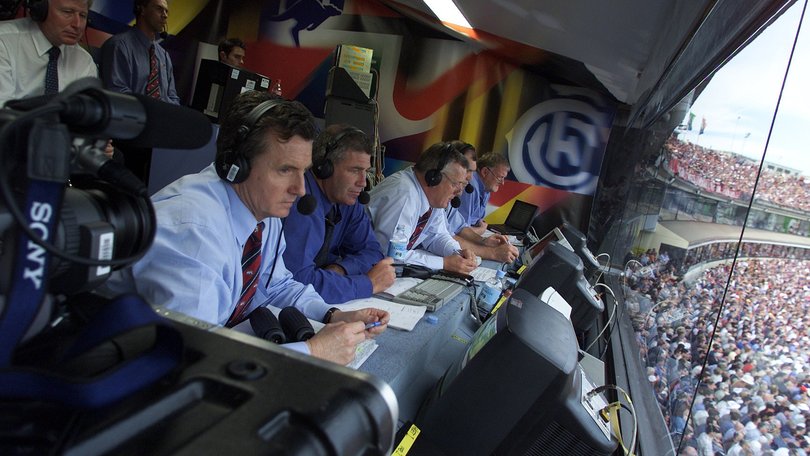
Dennis Cometti was the master.
On the cricket field, my opening partner was Matty Hayden, but if I could ‘commentary-box bat’ with anyone, it’d be Dennis. He was a genius.
I remember watching AFL games just to hear what he would say next. He’d drop a reference to an old song or a movie line, and it would be so perfectly timed you’d think he’d scripted it weeks in advance.
Sign up to The Nightly's newsletters.
Get the first look at the digital newspaper, curated daily stories and breaking headlines delivered to your inbox.
By continuing you agree to our Terms and Privacy Policy.That was his gift. His ability to mix spontaneity with precision was elite.
Over the years, I would be invited to coffee, or lunch catch-ups with Dennis, Kim Hagdorn, Steve Malaxos and Dr Clay Golledge. They were always great fun, talking about sport and life in general. The passion of these men was infectious. I loved every minute of our meetings and learned a lot along the way.
Dennis’s approach has influenced my short time calling Test matches. His advice was always respect your audience’s intelligence, trust the moment, and for goodness sake, don’t over-talk - a trait I work on in every commentary stint.
Dennis once said: “What you find with football matches, is that they tend to be very similar. They’re sort of like lamingtons in a way. They’re made to a formula. There are stoppages, ball-ups, there are boundary throw-ins. What I found over the years sitting and watching is that you can see where you can say things and where you can’t say things.”
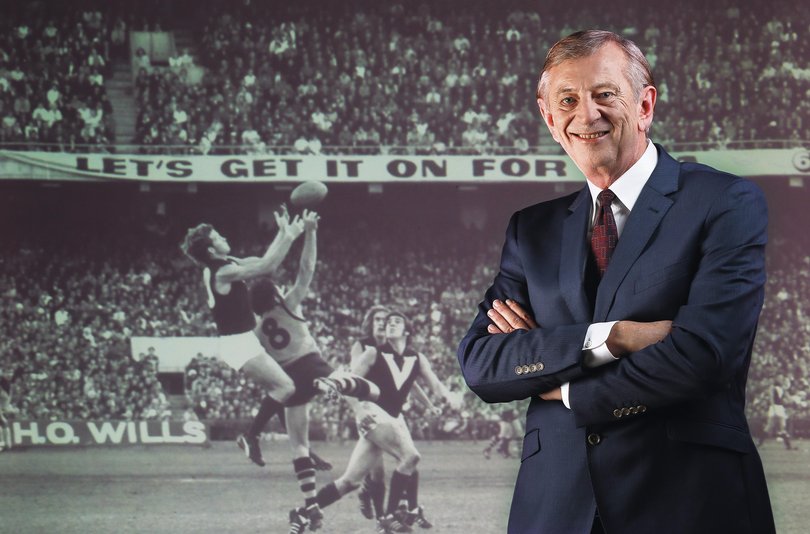
When he retired in 2016, I genuinely felt Australian sport lost something irreplaceable, but like all great artists and champions, he not only left us with unique memories, but for some, a benchmark of excellence to aspire.
On November 21, some of my best mates and I will settle into the commentary box for the much-anticipated Ashes series. Every time I have the opportunity of sitting in the same seats as some of the great commentators, I pinch myself at the privilege.
Over the past three years I’ve not only worked with the likes of Hayden, Ricky Ponting, Simon Katich, James Brayshaw, Tim Lane and Ali Mitchell, but along the way we have also teamed up with internationals such as Ian Bishop, Jonty Rhodes, Sunil Gavaskar and now, Stuart Broad.
Like my playing days, this team is one I love being a part of, not only for the varying personalities and styles, but also for their drive to be brilliant at what they do.
On Tuesday I had dinner with James Brayshaw, who is back in Perth for his nephew’s wedding this weekend.
Over a glass of red wine, I couldn’t help but ask him what it’s like to call the AFL grand final. Having called 25 consecutive grand finals, 20 on radio and the last five for Channel 7, I was fascinated to know if he also pinched himself at the opportunity.
He told me: “So much goes into the preparation, and we sit in the same seat every weekend of the season, but just before bouncedown I take a breath and remind myself of what the next few hours is all about. I know it is a great privilege.”
‘Bray’ learned from the best, of course.
Who could ever have had a better mentor than the very best in cricket, Richie Benaud?
Richie was cricket commentary royalty.
“The key thing is to shut up,” was Richie’s mantra, and what a mantra it was. Not dissimilar to Cometti’s.
In a world where everyone wants to fill every second with noise, Richie understood the power of silence. That cream jacket, that voice, that economy of words.
“Marvellous.”
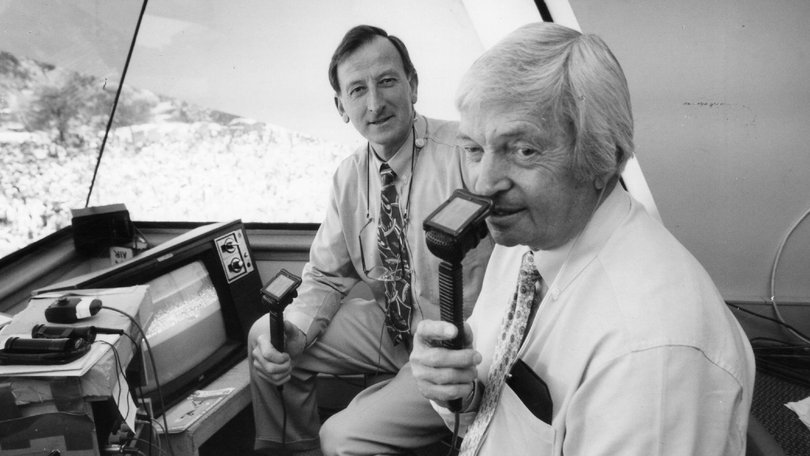
Just one word, but when Richie said it, you knew you’d witnessed something special.
Sometimes the best thing you can say is nothing at all. Let the moment, let the player, the images speak for themselves. This takes courage and experience, but the more you watch, or listen to the best of them, the more you understand this skill.
Years of listening to Richie doesn’t only bring back wonderful memories, but having been fortunate enough to play under his gaze, hear his analysis and learn from his wisdom - I was often amazed by what he saw or sensed.
In 2003, late on day one of the Boxing Day Test, I was batting against England. Richie said on commentary: “Langer looks so calm, so composed he looks like he is meditating.”
What he didn’t know, in fact no one would know until now, is that on that occasion - which happened to be the highest score of my Test career - there was a cross marked in the crease of the turf where Haydos and I stood and scratched all day.
Before every delivery, I took a breath, looked down at the cross and faced the next ball. I was so focused that I did feel very similar to how I do when I am meditating.
Richie’s summation was eerily correct and an observation that blew my mind at the time. It still does today. The way he watched and explained the game was brilliant. It is no wonder he was so loved around the cricket world.
One of his commentary partners was Bill Lawry, or “Phantom” as he was so affectionately called.
“Got him, yes!” Or “it’s all happening!” the proud Victorian would roar.
Bill never hid his feelings, never pretended to be neutral. His passion is legendary. When Australia was on top, Bill was in heaven. When we were struggling, you could hear the pain in his voice. I loved that about him. Bill was the heartbeat of cricket commentary, the fan who somehow ended up in the box, and we were all better for it.
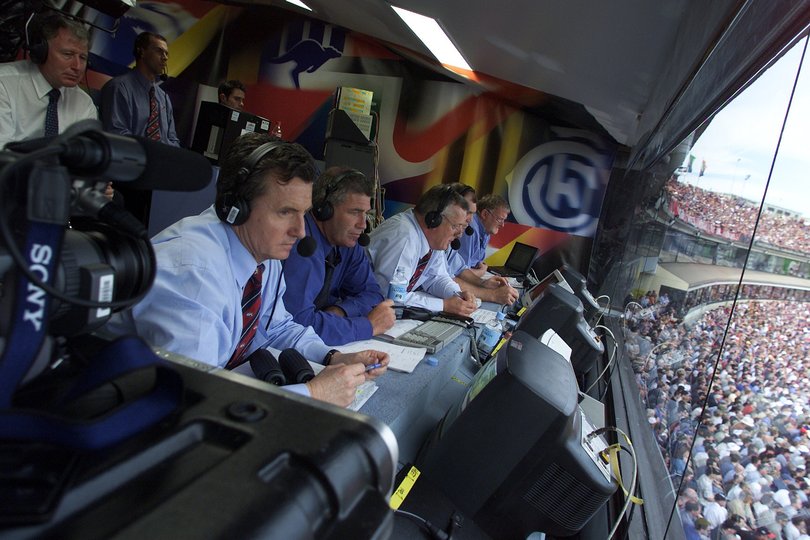
And, then there’s Bruce McAvaney.
“Special.”
How many times have we heard Bruce use that word? And every single time, he means it.
What strikes me about Bruce is his genuine reverence for athletes and their stories. When he called Cathy Freeman’s gold medal at the Sydney Olympics _ “look at the smile on her face” _ the whole nation was smiling with her. Bruce makes us care about athletes across every sport.
His homework and preparation are legendary; he knew your story better than you did sometimes. He was the person I most trusted to interview me when I started at Channel 7.
Despite the noise of my exit from the Australian head coaching role, he made me feel safe, ‘special’ and his research was obvious.
Ray ‘Rabs’ Warren in rugby league was the soundtrack to so many eastern Australian winters. Smooth as silk but authoritative when he needed to be, he applied the same principles; know your craft, respect the moment, bring people along with you.
In racing circles, Greg Miles owned the microphone at Victorian racing for four decades. His voice thundered across racetracks.
The maestro of Melbourne Cups and Cox Plates, Miles didn’t just call races, he painted pictures through sound.
“They’re racing!” he’d roar as the gates crashed open, building towards his signature, “it’s all happening!” when thoroughbred champions clashed down the straight.
Every syllable dripped with drama, every pause perfectly timed. Like a theatrical poet, Miles transformed radio static into goosebumps, making kitchen radios feel like trackside rails.
Matt Hill is now ‘the voice that stops the nation’. This Tuesday at Flemington that voice will be heard around the globe, leaving memories for millions.
Outside our shores, the man who shows what pure theatrical genius looks like in sports announcing is Michael Buffer. You may not know his name, but I am sure you have heard his voice.
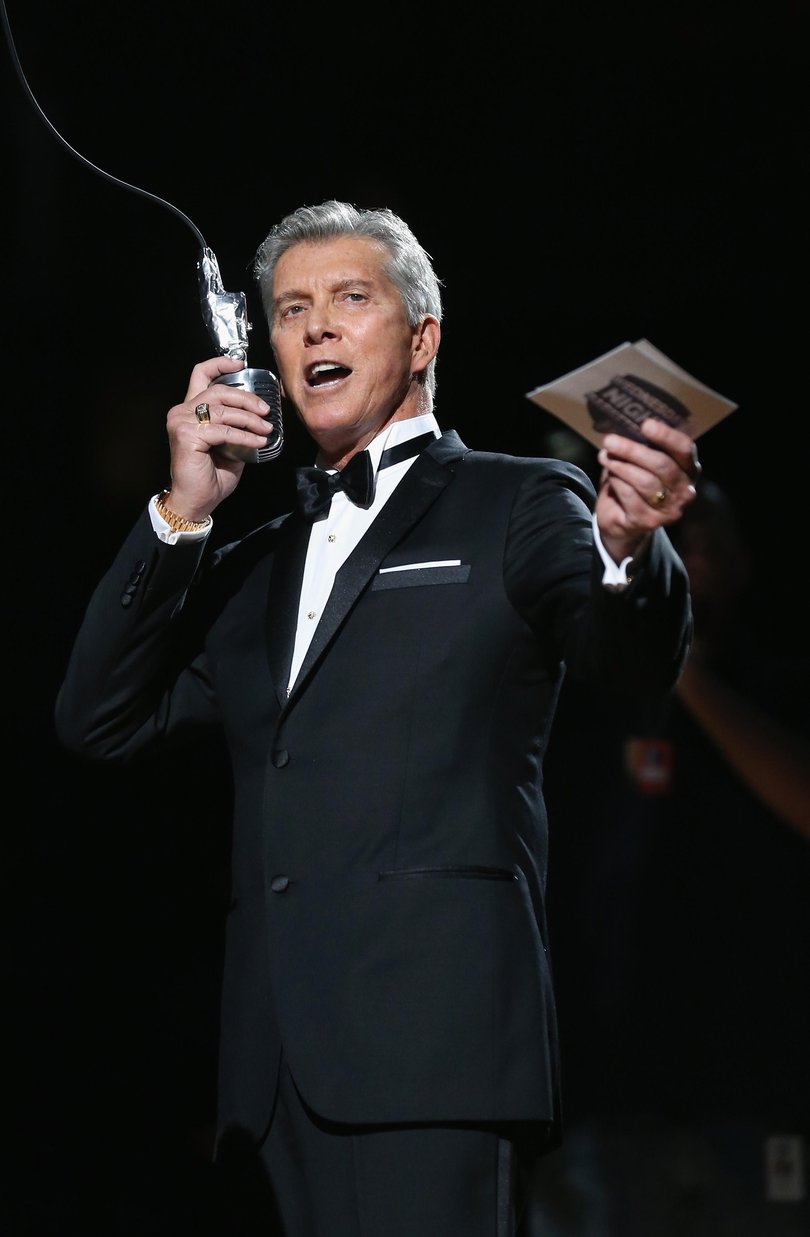
Under the glare of fight-night lights, when the crowd hums with anticipation and the air feels electric, Buffer, dressed in a tuxedo as sharp as his diction, steps into the ring to introduce the fighters.
After his colourful descriptions, comes the moment, the pause, the breath, the slight lift of the microphone and finally that thunderous crescendo: “Let’s get ready to rumble!”
It’s more than a phrase, it’s a ritual, a spark that transforms nervous energy into a collective roar.
Buffer’s golden baritone doesn’t just announce a fight; it awakens the arena. Few lines in sport have ever captured such magic. Trademarked, imitated, immortalised, Buffer’s cry is both theatre and tradition, a masterclass in timing, tone, and tension.
Michael’s half-brother Bruce brings a completely different energy to combat sports. Known as the “Veteran Voice of the Octagon,” he doesn’t just announce UFC bouts; he unleashes them.
Where Michael’s famous line, “Let’s get ready to rumble,” glides with grandeur, Bruce’s cry, “It’s time!” explodes like a starter’s gun. He doesn’t deliver it from the centre of calm, he lives it, lunging, twisting, spinning with the energy and passion of the athletes he introduces.
Their stories are almost cinematic, two brothers, unaware of each other for decades, meeting later in life and discovering they shared not only blood, but the same rare gift, the ability to command a crowd with voice alone.
Their styles may be different, Michael’s steeped in elegance and theatre; Bruce’s, fire and motion, but together, they form the twin echoes of combat sports.
All these legends, and more, like Jim Maxwell, Drew Morphett, Karen Tighe, Glenn Mitchell, Norman May – “gold, gold, gold for Australia” – have taught me excellence in the commentary field is about reading the room, picking your moments, and always respecting the game and the audience.
Their voices didn’t just call sporting events; they helped shape how we experience sport itself. They’re in our memories, in our lounge rooms, in our national consciousness. They made us feel connected to something bigger than ourselves.
That’s not just commentary, that’s art. That’s legacy. That’s why they’ll never be forgotten.
I feel incredibly grateful to be holding the baton in this period of Australian cricket.
Bring on the first Test at Optus Stadium.
